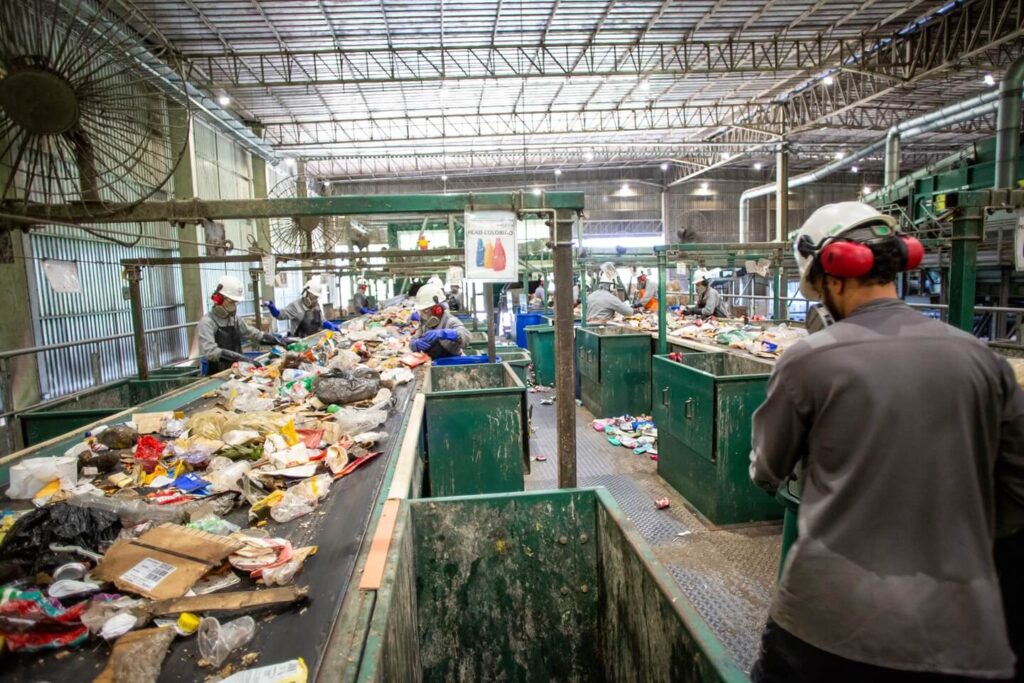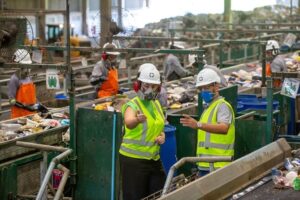
Urban solid waste management in Brazil is the responsibility of municipalities, which contract companies to handle the collection of materials, transportation, and final disposal, which must be done in a sanitary landfill. Usually, these steps are carried out by the same company.
These service providers for urban solid waste management are approved through public tenders, divided into:
- Electronic bidding: a faster tender for urgent measures without extensive assessments of the company’s reliability.
- Public call: for short-term contracts, lasting 4 to 5 years.
- Long-term contract: when the municipality hires a company to manage waste as part of a broader environmental and public management business plan.
Especially in the last two cases, the winning company must have an Environmental License, demonstrating its capability to handle the region’s waste volume. It must also provide various studies proving that the chosen land for final disposal complies with regulations, including Preliminary License, Installation License, and Operating License.
For a sanitary landfill project to be approved, it must meet necessary safety parameters for handling harmful materials, featuring systems like leachate drainage, biogas and rainwater management, landfill bottom impermeabilization, compaction levels vs. expected lifespan, and more.
In addition to sanitary landfills, there is also selective collection, which sends materials for recycling, a process that is still predominantly conducted informally in Brazil.
Commercial Interest Challenges in Waste Management
Currently, there are two major challenges to achieving sustainable urban solid waste management in the country:
- tenders through electronic bidding that choose companies based on the lowest cost without inspecting the destination sites;
- the lack of incentive laws for sanitary landfills with technology for waste valorization.
Once a municipal tender winner is approved, the sanitary landfill is ready to receive waste, generating revenue through payments for the collection and burial of collected waste.
This model often leads to companies uninterested in waste valorization burying materials that could be repurposed, wasting profitable materials and missing opportunities to generate income for informal waste pickers and recyclers operating in the region.
The conflict of interests and lack of investment in technologies and services to process waste into usable raw materials caused Brazil to lose BRL 14 billion in 2019 by landfilling recyclables and around BRL 2.4 billion in public health funds due to poor waste management impacts.
This figure results not only from the lack of waste valorization but also from the ongoing challenges cities face in disposing of waste environmentally correctly.
Applying Circular Economy to Waste Management
To overcome this situation and enable more effective urban solid waste management in Brazil, circular technologies, already employed in various parts of the world and growing in the country, must be discussed.
These materials can serve as inputs for other industries and be transformed into less environmentally impactful raw materials, such as:
- Biogas: gas extracted from the decomposition of organic matter, which can be used as renewable natural gas.
- Biomethane: purified biogas, an excellent alternative for renewable energy generation.
- Composting: controlled decomposition of organic materials, turning them into fertilizer for agricultural production.
- RDF: Refuse-Derived Fuel, composed of high-calorific-value materials.
- Recycling: the process of repurposing recyclable materials into new products.
All these processes can be successfully implemented in an Ecopark, such as those by Orizon, where waste is separated into categories at a Mechanized Sorting Unit and appropriately directed.
In addition to generating a positive environmental impact, this business model also holds social responsibility, integrating cooperatives and informal waste pickers, creating a safe and healthy environment.
Ecoparks are an important resource for small cities that struggle to directly contract waste disposal services but can achieve this through partnerships with other cities.
Besides properly treating regional waste, they also help promote new job opportunities and bring ecological solutions to other industries, as demonstrated by Orizon’s unit in Paulínia, serving various surrounding cities.
The management of solid waste in Brazil, through the cooperation of companies and public authorities, can make significant progress and meet the country’s sustainable development goals.
Discover all the services of our Ecoparks and learn more about waste valorization technologies.



